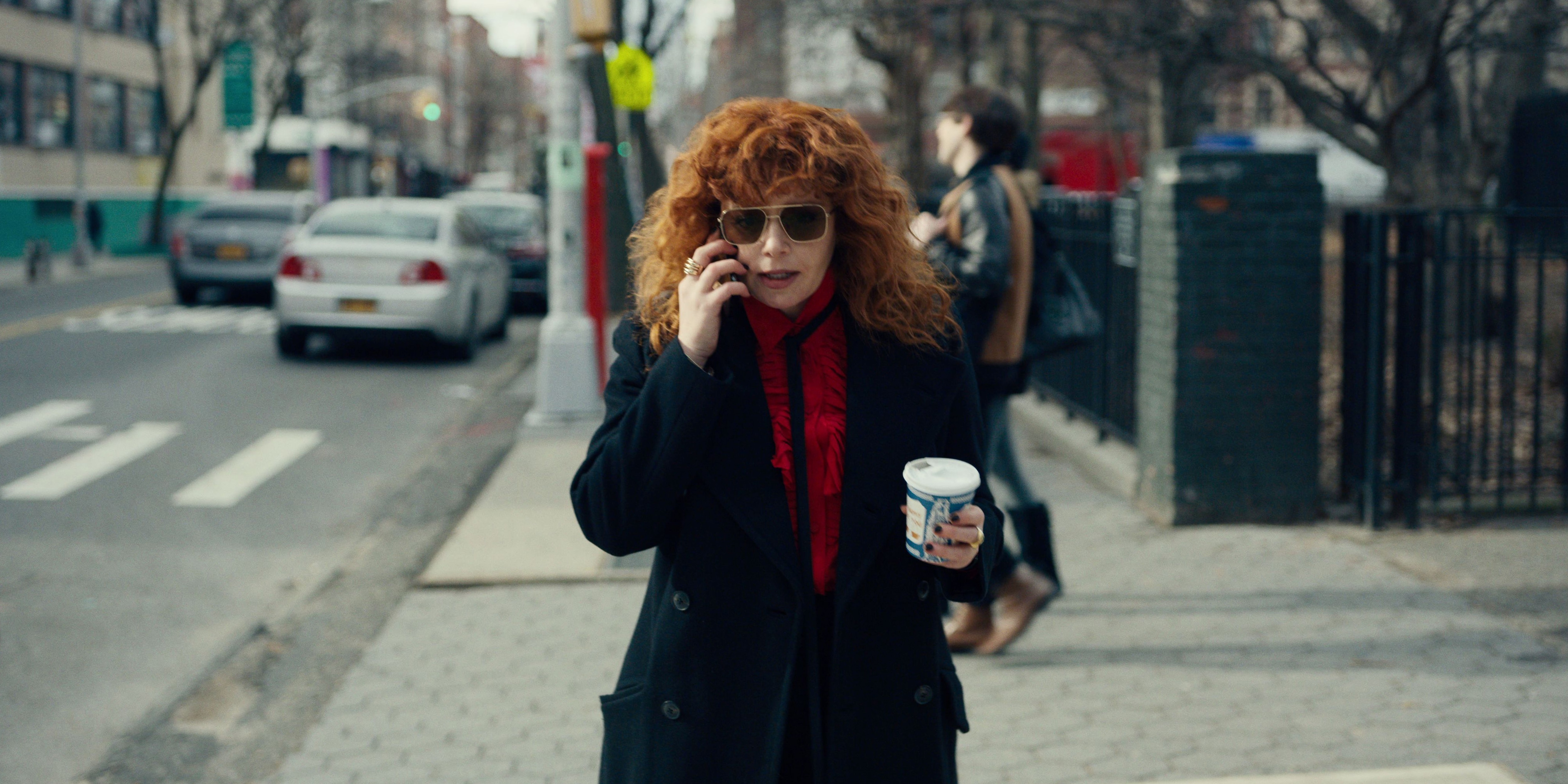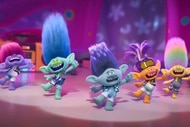Create a free profile to get unlimited access to exclusive videos, sweepstakes, and more!
Emmy Contender: How Russian Doll's soundtrack evoked old NYC (without Velvet Underground)

Welcome to Emmy Contenders 2019. This month, SYFY WIRE is speaking to a long list of actors, artists, and artisans whose work earned them Emmy nominations this year. Today we speak with Brienne Rose, the Emmy-nominated music supervisor for Netflix's Russian Doll.
Every time Natasha Lyonne dies, she finds herself in front of the bathroom mirror as Harry Nilsson's "Gotta Get Up" plays – Russian Doll's answer to Groundhog Day's "I Got You Babe."
It could have been The Stooges' "No Fun" ("No fun to hang around/ Freaked out for another day"). Or Lou Reed's "Crazy Feeling" ("Now, now, now, you've got that crazy feeling/ You know that I've had that crazy feeling, too.") But Nilsson's song – with its staccato piano chords and bouncy refrain — is the one that we hear, with its repeated worry that he's going to be late.
That and all the other spot-on musical selections come courtesy of music supervisor Brienne Rose, who shared the making of her playlist with SYFY WIRE.
How did you land on "Gotta Get Up"? And how difficult was it to get the rights for so many repeated uses?
When I initially met with Leslye Headland and Natasha Lyonne, using a song as a guiding light was something we talked about, and the Harry Nilsson song was written into the script. While we were in negotiations for it, we talked about other options but we just kept coming back around to "Gotta Get Up," because it has so many qualities that we loved for the show. The lyrics have this devastating aspect about growing older, and that's juxtaposed against the really happy melody, which is upbeat and fun and vibrant. We wanted a song that captured a certain quality like that song did. Also, Harry Nilsson was also such a tragic figure in and of himself, and so is Natasha's character, Nadia. The show also has a timelessness to it, so we were considering music from all different eras, because the era wasn't as important as the song itself and what it achieved. Having this disorienting, dizzying aspect was important.
It was a delicate process getting the rights, because the amount of the uses and the exact uses themselves were still in flux. We were working with the label, the publisher, and Nilsson's estate, and it was a lot of back and forth. When you're clearing music, one of the important aspects is the exact length of time that you're going to use of the song per each use, and the description of the scene. All of that comes into play in figuring out the price. But we didn't have that yet, so they were really lovely about our circumstances being uncertain, because we reached out to them before shooting even began, so we didn't even have rough footage to share.
You can tell them, "I promise it's going to be a great show," but that's really hard for something that's unproven. We structured a deal that allowed us to use it a certain amount of times, and we did have to go back to them a couple of times and re-establish what exactly the uses were. So it was an ongoing negotiation, and I can't share the price, but everyone was happy in the end. Although in a perfect world? It would have been unlimited uses.
You can't share the price, but is it fair to say that it was more expensive than the other tunes? Did that affect your song selection for the rest of the show?
Yeah. It certainly informed a lot, because this was the largest piece of the music budget, and it meant restructuring everything else. So some of the bigger songs that had been discussed, we had to make some changes. We had to go after a lot of great up-and-coming artists rather than larger artists. There were other bands that were really important to the feeling of the world and informing the world through music, and one of those was the Velvet Underground. They were a New York band that we talked about a lot that really captured the spirit of that world and of Nadia's experience, and if we had an unlimited budget, we would have gone after a few of those songs. We couldn't afford to. But we're really happy with all the choices that we did end up with.
What other New York artists did you get to fill the void left by the Velvet Underground?
Light Asylum at the end of Episode 1, for example. Natasha is friends with their singer, Shannon Funchess. Gang Gang Dance in Episode 3. But we also did some bands that captured the New York vibe rather than being specifically from New York.
Were you looking specifically to have Russian artists as well? You use Pussy Riot in the end credits for Episode 7, following Nadia's most violent death.
That was really important to Natasha, and that was a fun one. I'd never cleared or worked with Pussy Riot before, and they were so great to work with. It was fun to go after that one. For each of the end credits, Natasha, Leslye and I would go through each and every one of those scenes and ask, "Does this song feel like it fits the moment? Does it elevate the moment? What are we saying through the music and through this piece?" We spent a lot of time trying them out.
Also during the flashback episode, we hear When In Rome's "The Promise," from 1987. Why that song?
We tried a lot of different things. The mom is a really wild character, and we talked a lot about what she would be listening to, what would feel authentic to that era, but we were also being budget-conscious. We really wanted to nail the feeling of that period. That was one of the frontrunners that also worked for the budget, so that was a great fit.
Some of your deep cuts finds date even farther back. Pony Sherrell's "Don't Put Off ‘Til Tomorrow," from 1956, kicking off Episode 2. Mae West's "My New Year's Resolutions," from 1966, in that same episode.
Yeah, the Pony Sherrell one was a funny one, because I saw the title of the song and there was a moment where I thought, "Maybe this is too close to our theme." But it ended up working out great. And those older tracks really play into the timelessness aspect a lot more, because you're switching from things that feel new to these great lesser-known female artists who have a really distinct sound. Jacqueline Taïeb in Episode 6, too. This is an eclectic group of people who are artists and living in the East Village, and what music would they have in common, especially at a party? Yes, they would probably have Harry Nilsson playing, but they would probably also have some French pop.
Alan is probably the least eclectic character. Why Beethoven's "Piano Concerto No. 4 in G Major" for his reset music?
That particular piece just really captured the Alan-ness of it all. We knew it should be a classical piece, and we tried a bunch of different pieces, and that one wasn't too fast, it wasn't too slow, and it repeats over and over. It seemed to capture Alan and his obsessive-compulsive disorder, to a certain extent. Whereas Love's "Alone Again Or" captures both Alan and Nadia. It doesn't lean more towards either one of them. And the song needed to feel a little bit epic, because we're ending Season 1 on that, but not in an over-the-top way, because that wouldn't be our series. So I think it was just magical that that piece worked for both of them to finally stop dying.














